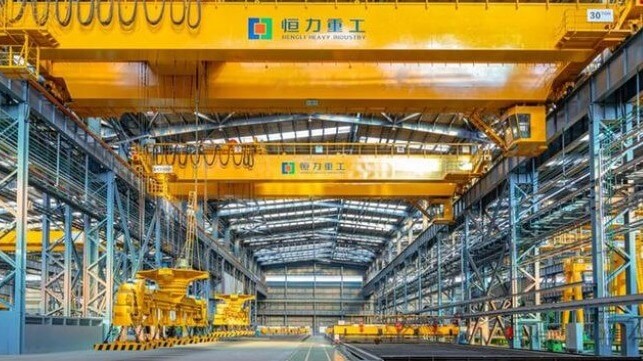Former STX Dalian Shipyard Goes Public in Reverse Merger

Hengli Heavy Industry, the inheritor of collapsed shipbuilder STX Dalian, is planning to go public in a reverse merger with one of China's oldest ceramic porcelain manufacturers. It is the latest twist in a long series of turns for the yard on Changxing Island, and will give the owners a new way to raise capital.
Founded in 2006 by Korean conglomerate STX, the STX Dalian shipyard had a boom in its first years of operation. By 2012, as the shipbuilding sector entered a slump, growing financial troubles at the parent company became apparent. STX Dalian entered bankruptcy in 2015, but repeated attempts at an auction failed to find a buyer, and it sat idle until 2022 - when it was bought by China's second-largest private company, Hengli Group.
Hengli Group renamed the yard Hengli Heavy Industry and relaunched its commercial operations in 2023. Since then, it has secured dozens of orders in a red-hot shipbuilding market. It has announced plans to invest $1.3 billion in the yard's expansion, aiming to raise annual capacity to more than seven million deadweight tonnes.
Hengli Group has now detailed its plans to take this shipbuilding subsidiary public. A Hengli family-controlled business with a Shanghai-listed stock, Guangdong Songfa Ceramics Co., will buy Hengli Heavy Industry and then exit the ceramics business. Songfa's stock will become the listing for the shipyard.
According to a newly-released draft deal, Songfa will acquire 100 percent of Hengli Heavy Industry for $1.1 billion, payable with its own assets - valued at $70 million - plus an additional $1 billion raised through the issuance of new shares. It will also issue an additional $700 million worth of shares to raise capital for new investments in the yard.
After word of an imminent restructuring spread in October, Songfa's stock price quadrupled, prompting warnings about speculation. The price fell off again after the news of the share issuance, which will dilute existing shareholders. By Wednesday, the stock value had fallen by about 30 percent compared to its peak in November, but was still up more than 200 percent over the past two months.
No comments:
Post a Comment